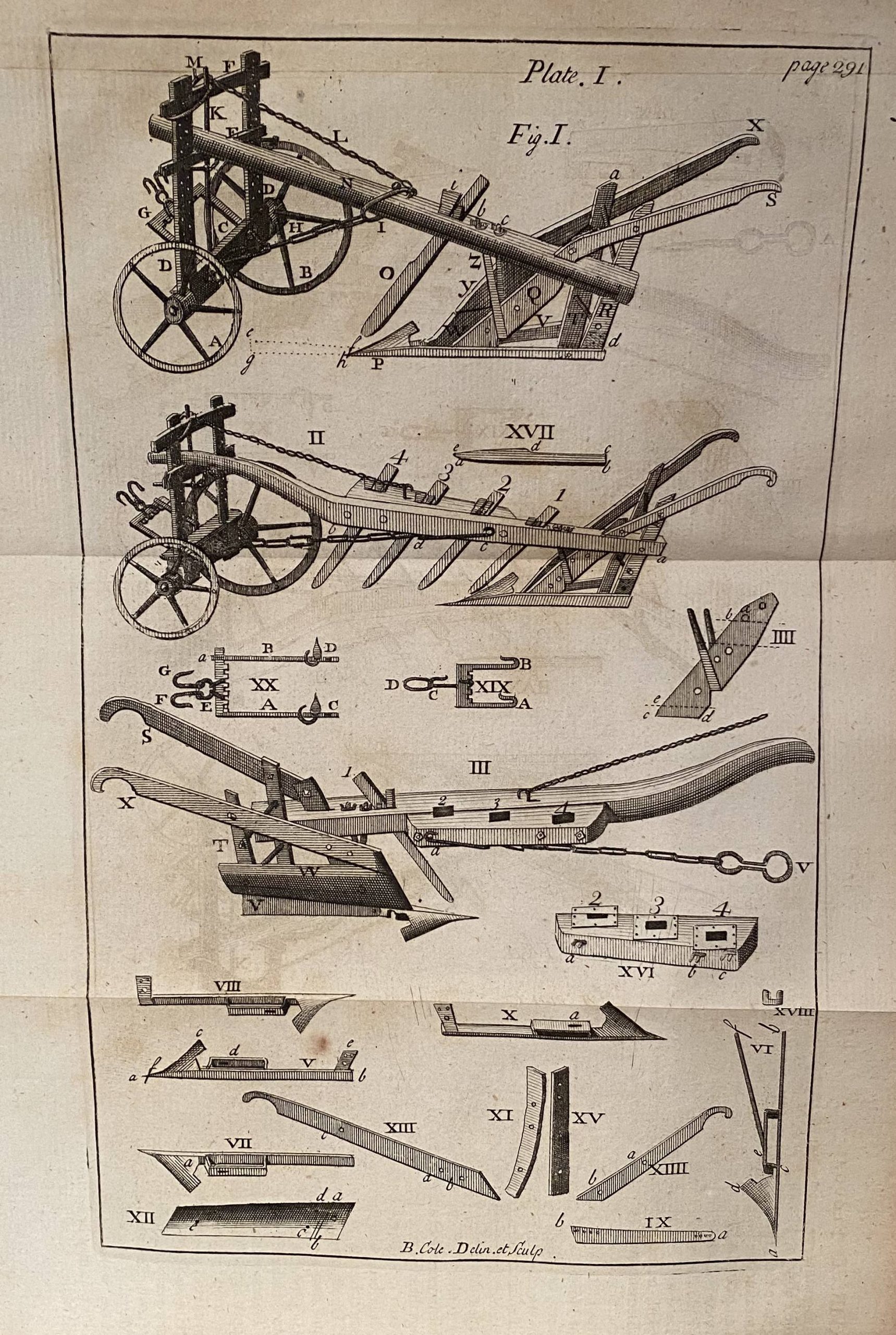a landmark in scientific agriculture the edition Thomas Jefferson owned
TULL, JETHRO. Horse-Hoeing Husbandry: or, An Essay on the Principles of Vegetation and Tillage. Designed to Introduce A New Method of Culture; whereby The Produce of Land will be Increased, and the Usual Expense Lessened. Together with Accurate Descriptions and Cuts of the Instruments Employed in it … fourth edition, very carefully corrected
London: Millar, 1762
7 engraved plates, some folding. Contemporary calf, morocco labels. Very good.
The edition that Thomas Jefferson owned. Jefferson wrote from Monticello in 1817, “While I was an amateur in Agricultural science (for practical knowledge my course of life never permitted me) I was very partial to the drilled husbandry of Tull.”
Jethro Tull’s invention of the seed-drill helped bring about a revolution in agriculture. “By contour ploughing, drilling his seed at wide intervals, and using his horse-hoe to destroy weeds, Tull was able to grow wheat on the same fields for thirteen years continuously without manuring” (ODNB). “The practices of drill-sowing and frequent hoeing are the greatest improvements which have been introduced into the modern practice of tillage” (McDonald).
Sowerby, The Library of Thomas Jefferson 701. Printing and the Mind of Man 188 (first edition of 1731).
$600




